[ad_1]
When British-born Indian Navjot Sawhney took a sabbatical from work within the UK and moved to India, he had by no means fathomed that girls refugees in Iraq can be endlessly grateful to him.
And all of this for his work on a washer.
An aeronautical engineer by career, Navjot put his engineering expertise to make use of when he met Divya, a homemaker in Kuilapalayam village, Tamil Nadu, throughout his sabbatical.
Seeing her endure from backache and pores and skin irritation from washing garments along with her fingers, he constructed a low-cost handbook washer that requires no electrical energy and little or no water. It not solely washes but additionally dries 70-80% of garments.
Priced between Rs 5,000-Rs 6,000, the unbelievable innovation by Navjot has bagged a number of grants, awards and help from corporates and non-profits world wide.
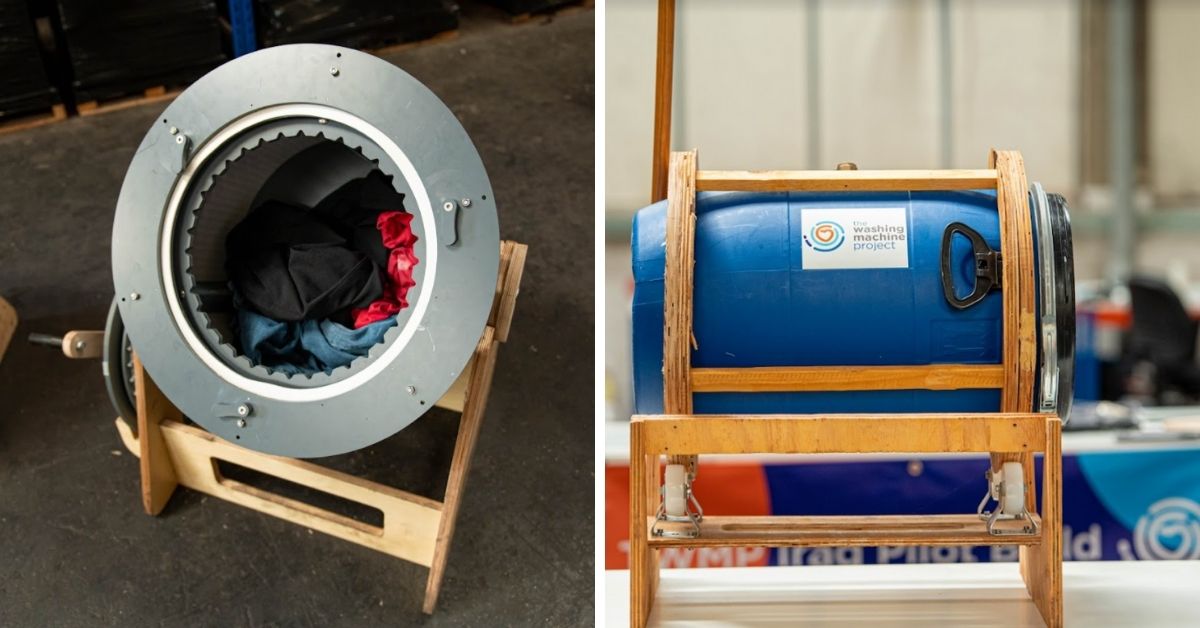
He launched his first machine in August 2018 and since then he has deployed over 150 items throughout Iraq and Lebanon, positively impacting near 1,350 folks via his initiative ‘The Washing Machine Venture’. Underneath this venture, organisations buy machines from him and distribute them without spending a dime.
“I used to be working at a high-end vacuum manufacturing firm once I took a sabbatical. After experiencing the village way of life and its issues, it didn’t really feel proper to make use of my expertise to make merchandise benefiting the privileged. So, I stop my job and spent practically a yr to provide you with a washer,” Navjot tells The Higher India.
‘Designed Like A Salad Spinner’
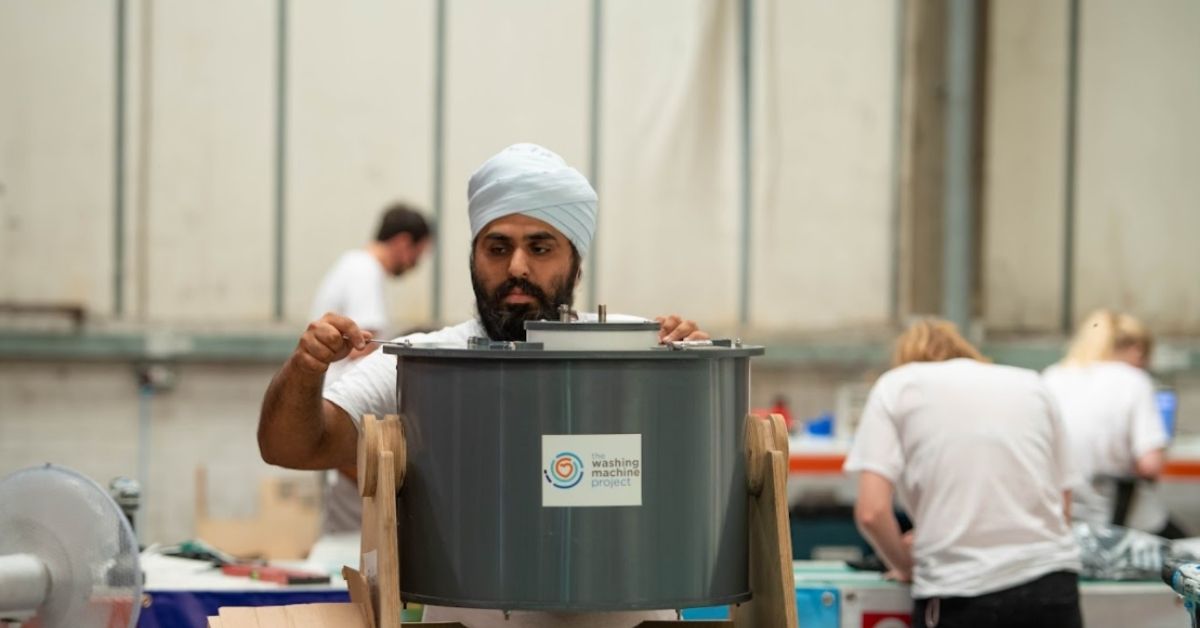
From sanitation, electrical energy, water to training, all Navjot noticed was a plethora of points that plagued the village life. What stunned him extra was that individuals have been compelled to be habituated to those issues.
His first innovation was clear cooking stoves that got here in 2017. This was for the ladies who would usually journey deep into the forest to gather firewood to arrange meals.
He then shifted his focus to the problems of washing garments with fingers, which is commonly undermined, particularly within the rural landscapes.
“We regularly see ladies laughing and chatting away on the river banks whereas washing garments. What we don’t see is the period of time, endurance, vitality and stamina that goes into the exercise. My neighbour, Divya, had contracted a water-borne sickness and pores and skin irritation. Not simply that, the exercise consumed numerous her time due to which she missed her incomes alternatives. Even her daughter needed to forgo her research for a while to clean garments,” says Navjot.
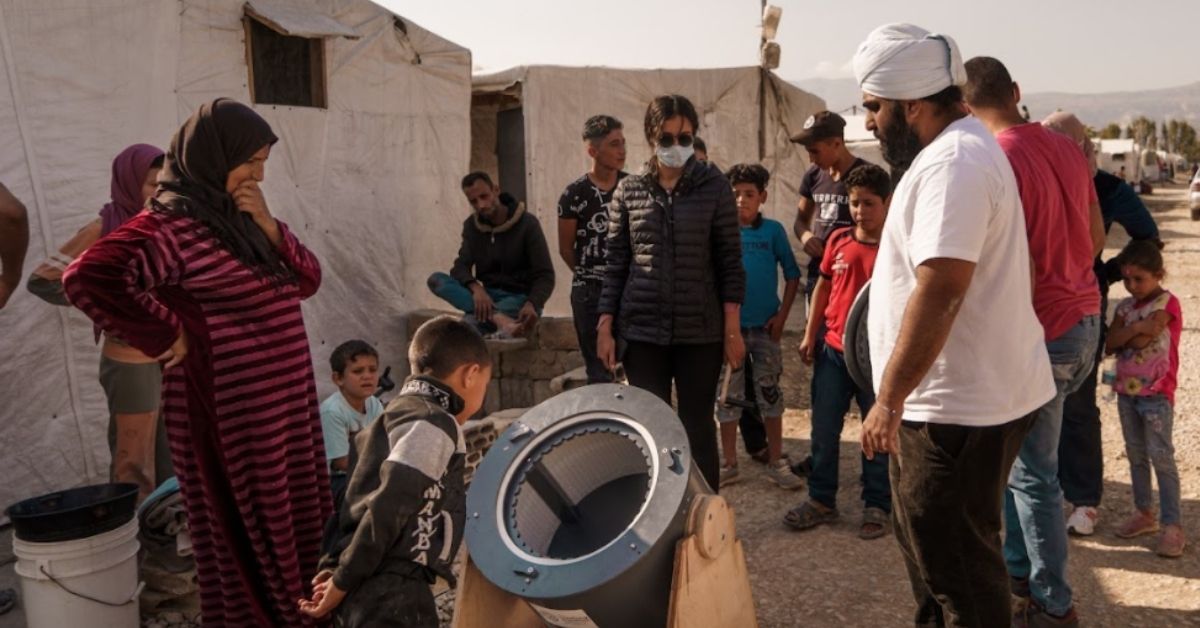
After that, Navjot travelled to 12 growing international locations and spoke to over 2,500 households to survey handwashing garments. He discovered that this burden is widespread — disproportionately affecting ladies and youngsters, affecting their well-being and livelihood.
A yr later, Navjot discovered himself fiddling with spare components of various machines in his Greenford house kitchen. With salad spinner as his fundamental half, he constructed a prototype inside two days.
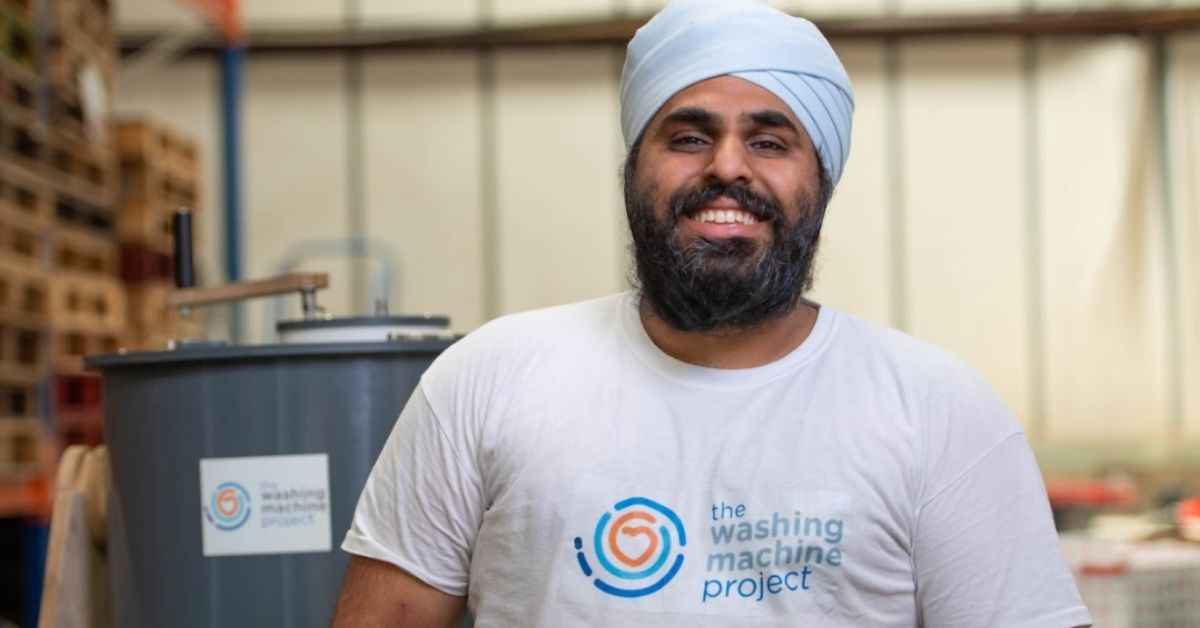
He christened the hand-cranked machine ‘Divya 1.5’.
“I designed the machine based mostly on the rules of a salad spinner. It has a capability of 5 kg per wash and a pace as much as 500 RPM. It comes with a guaranty of two years and weighs 35 kg. The speed-soak drum offers wonderful dewatering that reduces drying time and is 75% sooner than hand washing. All one has to do is put the garments inside and switch the wheel manually with a deal with,” he explains.
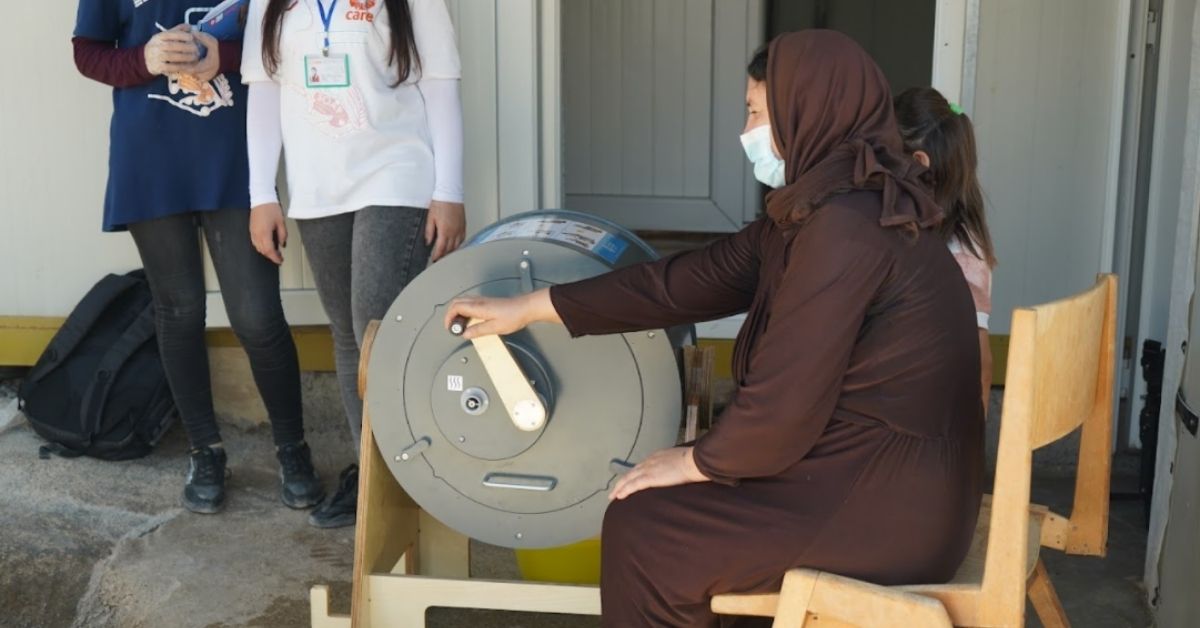
Whereas Divya and different ladies of that village are but to obtain the washer attributable to technical challenges, Navjot has managed to make inroads in conflict-affected zones of Lebanon and Iraq the place the machines are making a distinction.
“Ladies use roughly 50-60 litres of water if they’re hand washing the garments. Furthermore, they should stroll for miles to supply the water and likewise carry the burden of stuffed buckets. This was inflicting back-breaking issues for girls of Iraq’s Mamrashan Refugee Camp. Moreover, their free time is used to relaxation or assist the children with their research. Ladies can save roughly 750 hours yearly in the event that they cease hand-washing garments,” Navjot asserts.
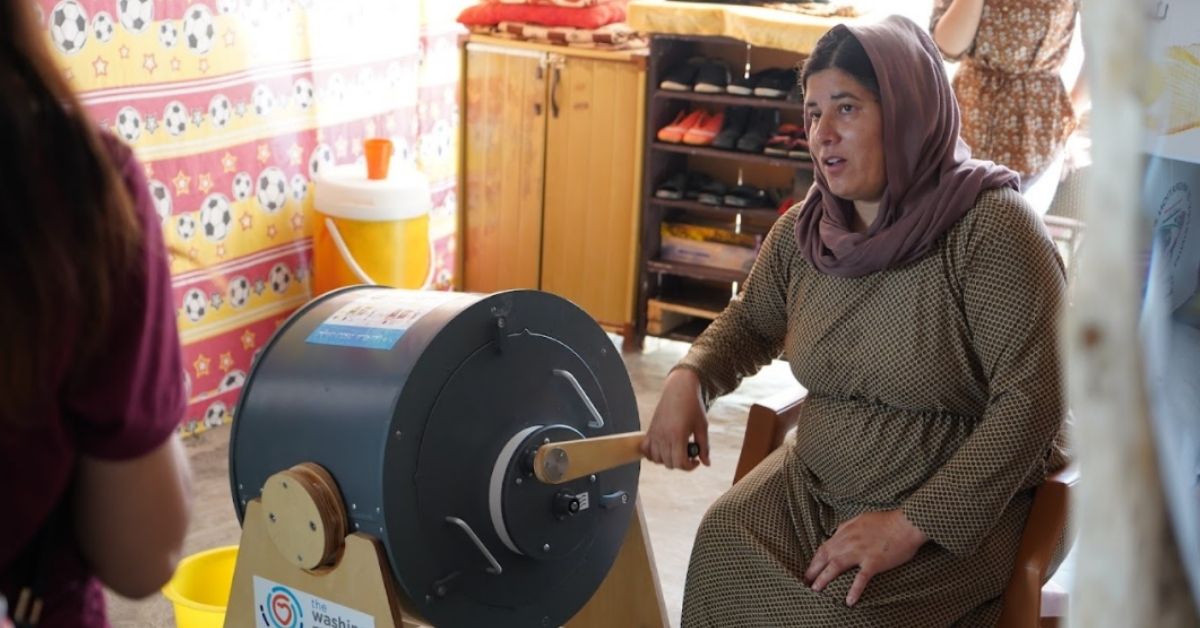
At current, he has greater than 2,000 pre-orders of the machine from 15 international locations.
When you want to donate a washer or cash, you possibly can click on right here.
(Edited by Yoshita Rao)
[ad_2]
Supply hyperlink